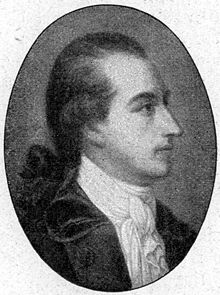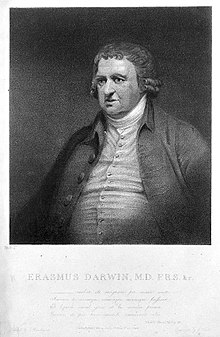Romanticism in evolution theory
Largely conceived as a reaction towards the extreme rationalism of the Enlightenment, it championed expressing emotions through aesthetic and emphasizing the transcendent allure of the natural world.
"[1] Historians have noted that Humboldt's vision of aesthetic appraisal and science was incredibly comprehensive and modern for his time: consequently, his work contributed to advancing observation in geography, geophysics, and natural history.
[4] Johann Wolfgang von Goethe (28 August 1749 – 22 March 1832) was a German Romantic poet, playwright, novelist, scientist, artist, and statesman whose works contributed significantly to natural history.
In 1790, Goethe wrote Versuch die Metamorphose der Pflanzen zu erklären (Metamorphosis of Plants) and Zur Morphologie, creating the scientific field of morphology, the branch of study in biology that deals with the structural forms of organisms.
Robert J. Richards suggests that Versuch die Metamorphose der Pflanzen zu erklären transformed biological sciences during this time period.
[7] Later evolutionists, including Carl Gegenbaur and Ernst Haeckel, used phenotypic variation first described by Goethe in his texts about morphology to advance the understanding of evolution.
Professor Robert J. Richards of the University of Chicago argues that it was both the Romantic perspectives of Schelling and Goethe which paved the way for a nature-centric understanding of evolution.
Though he is most often linked to the Age of Enlightenment and was an enthusiastic proponent of Materialism,[9] Erasmus Darwin's literary contributions popularized interest in the natural world, connecting him to the Romantic movement as well.
"The Economy of Vegetation" is focused on the evolution of mankind through technology and innovation and argues that industrialization was part of a single evolutionary process.
He also argues that sexual reproduction gives rise to phenotypic change (which his grandson would later incorporate into his own theory of evolution put forth in On the Origin of Species).In 1794, Erasmus Darwin also wrote Zoonomia, another book of verse, this time dealing with human physiology.




